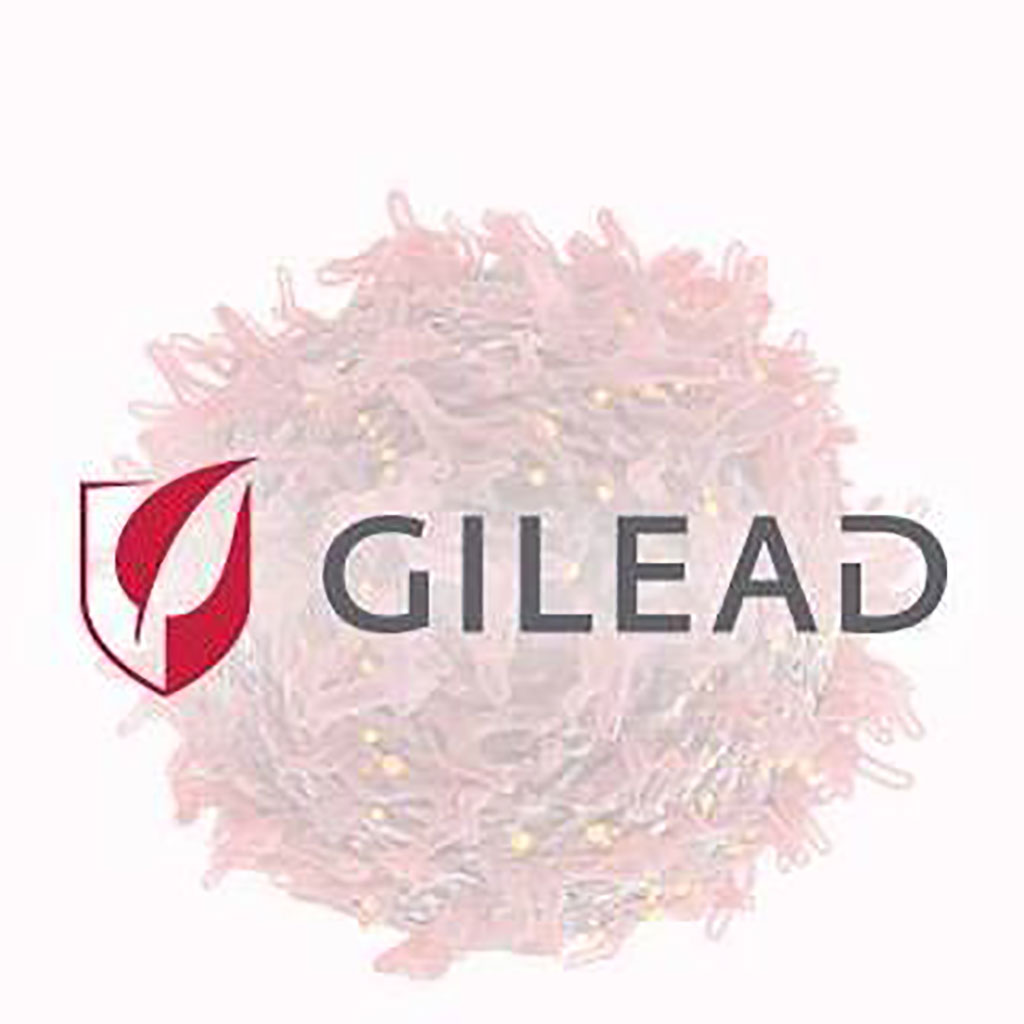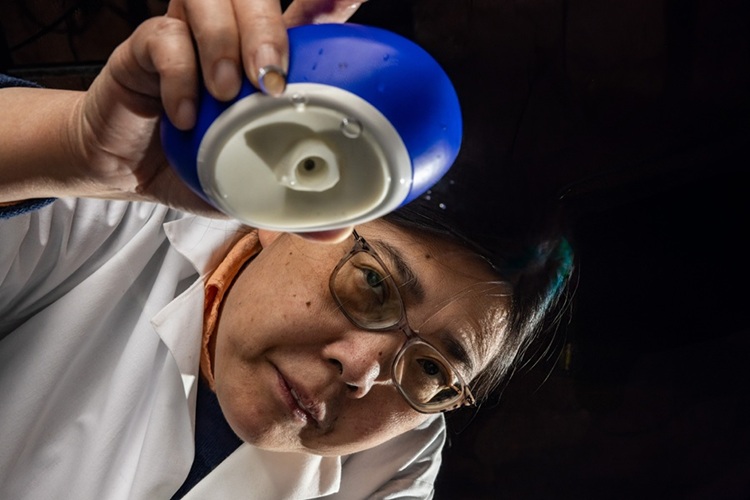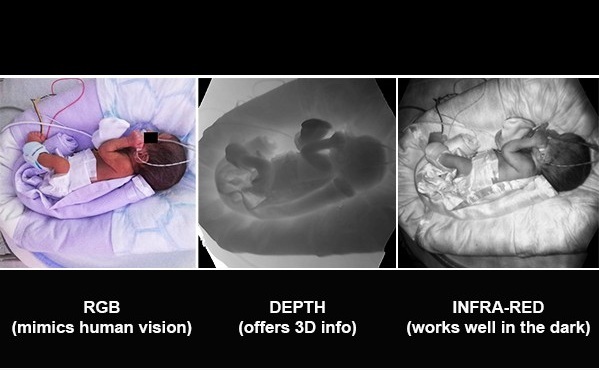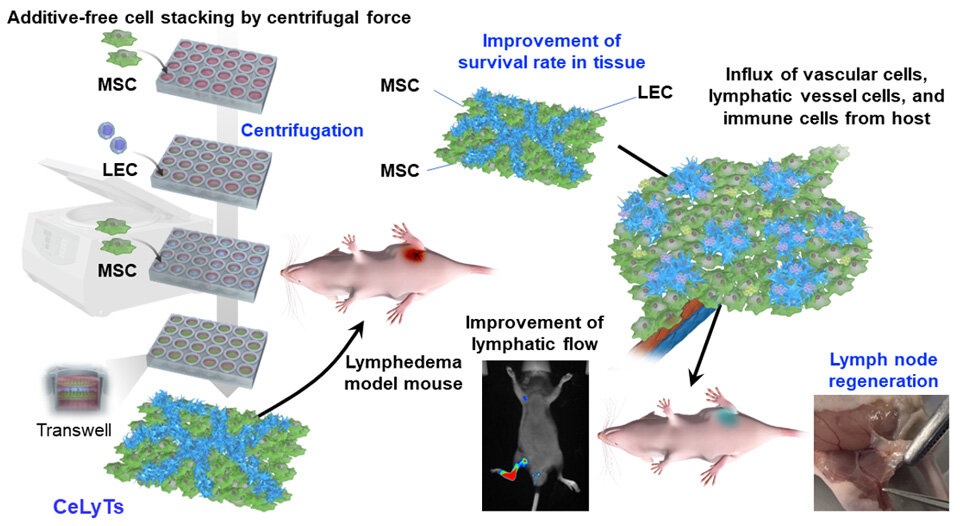Gilead’s Phase 3 Trial of Remdesivir Demonstrates Significantly Greater Clinical Improvement in Patients with Moderate COVID-19
|
By HospiMedica International staff writers Posted on 02 Jun 2020 |

Illustration
Gilead Sciences, Inc. (Foster City, CA, USA) has announced topline results from the Phase 3 SIMPLE trial in hospitalized patients with moderate COVID-19 pneumonia.
Remdesivir is currently approved in Japan as a treatment for patients infected with SARS-CoV-2, the virus that causes COVID-19. Outside of Japan, remdesivir is an investigational, unapproved drug. The US Food and Drug Administration (FDA) has granted temporary Emergency Use Authorization to remdesivir for the treatment of hospitalized patients with severe COVID-19.
In the latest study, hospitalized patients with confirmed COVID-19 infection and evidence of pneumonia without reduced oxygen levels were randomized (1:1:1) to receive open-label remdesivir for 5 or 10 days or standard of care alone. The primary endpoint was the clinical status as assessed by a 7-point ordinal score at Day 11, ranging from hospital discharge to increasing levels of oxygen and ventilatory support to death. The secondary study objective was the rate of adverse events in each remdesivir treatment group compared with standard of care.
At Day 11, a higher proportion of patients in the 5-day treatment group achieved improvement in clinical status versus the standard of care group, achieving statistical significance for a ≥ 1-point improvement in ordinal scale (p=0.026). In addition, non-statistically significant increases in clinical worsening or death were observed in the standard of care only group compared with the remdesivir groups.
“Our understanding of the spectrum of SARS-CoV-2 infection severity and presentations of COVID-19 continues to evolve,” said Francisco Marty, MD, an infectious diseases physician at Brigham and Women’s Hospital, and associate professor of medicine at Harvard Medical School. “These study results offer additional encouraging data for remdesivir, showing that if we can intervene earlier in the disease process with a 5-day treatment course, we can significantly improve clinical outcomes for these patients.”
“We now have three randomized, controlled clinical trials demonstrating that remdesivir improved clinical outcomes by several different measures. Today’s results showed that when treating moderate disease, a 5-day course of remdesivir led to greater clinical improvement than standard of care, adding further evidence of remdesivir’s benefit to previously released study results. The National Institute of Allergy and Infectious Diseases’ placebo-controlled study showed that remdesivir enabled more rapid recovery and that earlier treatment improved clinical outcomes. Our SIMPLE-Severe study showed that when treating patients with severe disease, 5 days of remdesivir led to similar clinical improvements as a 10-day course,” said Merdad Parsey, MD, PhD, Chief Medical Officer, Gilead Sciences. “The additional data we have in hand today will further guide our research efforts, including evaluating treatment earlier in the course of disease, combination studies with other therapies for the most critically ill patients, pediatric studies and the development of alternate formulations.”
Related Links:
Gilead Sciences, Inc.
Remdesivir is currently approved in Japan as a treatment for patients infected with SARS-CoV-2, the virus that causes COVID-19. Outside of Japan, remdesivir is an investigational, unapproved drug. The US Food and Drug Administration (FDA) has granted temporary Emergency Use Authorization to remdesivir for the treatment of hospitalized patients with severe COVID-19.
In the latest study, hospitalized patients with confirmed COVID-19 infection and evidence of pneumonia without reduced oxygen levels were randomized (1:1:1) to receive open-label remdesivir for 5 or 10 days or standard of care alone. The primary endpoint was the clinical status as assessed by a 7-point ordinal score at Day 11, ranging from hospital discharge to increasing levels of oxygen and ventilatory support to death. The secondary study objective was the rate of adverse events in each remdesivir treatment group compared with standard of care.
At Day 11, a higher proportion of patients in the 5-day treatment group achieved improvement in clinical status versus the standard of care group, achieving statistical significance for a ≥ 1-point improvement in ordinal scale (p=0.026). In addition, non-statistically significant increases in clinical worsening or death were observed in the standard of care only group compared with the remdesivir groups.
“Our understanding of the spectrum of SARS-CoV-2 infection severity and presentations of COVID-19 continues to evolve,” said Francisco Marty, MD, an infectious diseases physician at Brigham and Women’s Hospital, and associate professor of medicine at Harvard Medical School. “These study results offer additional encouraging data for remdesivir, showing that if we can intervene earlier in the disease process with a 5-day treatment course, we can significantly improve clinical outcomes for these patients.”
“We now have three randomized, controlled clinical trials demonstrating that remdesivir improved clinical outcomes by several different measures. Today’s results showed that when treating moderate disease, a 5-day course of remdesivir led to greater clinical improvement than standard of care, adding further evidence of remdesivir’s benefit to previously released study results. The National Institute of Allergy and Infectious Diseases’ placebo-controlled study showed that remdesivir enabled more rapid recovery and that earlier treatment improved clinical outcomes. Our SIMPLE-Severe study showed that when treating patients with severe disease, 5 days of remdesivir led to similar clinical improvements as a 10-day course,” said Merdad Parsey, MD, PhD, Chief Medical Officer, Gilead Sciences. “The additional data we have in hand today will further guide our research efforts, including evaluating treatment earlier in the course of disease, combination studies with other therapies for the most critically ill patients, pediatric studies and the development of alternate formulations.”
Related Links:
Gilead Sciences, Inc.
Latest COVID-19 News
- Low-Cost System Detects SARS-CoV-2 Virus in Hospital Air Using High-Tech Bubbles
- World's First Inhalable COVID-19 Vaccine Approved in China
- COVID-19 Vaccine Patch Fights SARS-CoV-2 Variants Better than Needles
- Blood Viscosity Testing Can Predict Risk of Death in Hospitalized COVID-19 Patients
- ‘Covid Computer’ Uses AI to Detect COVID-19 from Chest CT Scans
- MRI Lung-Imaging Technique Shows Cause of Long-COVID Symptoms
- Chest CT Scans of COVID-19 Patients Could Help Distinguish Between SARS-CoV-2 Variants
- Specialized MRI Detects Lung Abnormalities in Non-Hospitalized Long COVID Patients
- AI Algorithm Identifies Hospitalized Patients at Highest Risk of Dying From COVID-19
- Sweat Sensor Detects Key Biomarkers That Provide Early Warning of COVID-19 and Flu
- Study Assesses Impact of COVID-19 on Ventilation/Perfusion Scintigraphy
- CT Imaging Study Finds Vaccination Reduces Risk of COVID-19 Associated Pulmonary Embolism
- Third Day in Hospital a ‘Tipping Point’ in Severity of COVID-19 Pneumonia
- Longer Interval Between COVID-19 Vaccines Generates Up to Nine Times as Many Antibodies
- AI Model for Monitoring COVID-19 Predicts Mortality Within First 30 Days of Admission
- AI Predicts COVID Prognosis at Near-Expert Level Based Off CT Scans
Channels
Artificial Intelligence
view channelCritical Care
view channel
Wearable Patch Provides Up-To-The-Minute Readouts of Medication Levels in Body
Vancomycin is a powerful antibiotic used in hospitals to treat severe drug-resistant infections and life-threatening bloodstream infections. However, dosing the drug is notoriously difficult, as too little... Read more
Living Implant Could End Daily Insulin Injections
Diabetes affects millions worldwide and often requires lifelong insulin injections or external devices to manage blood sugar levels. These approaches can be burdensome and still struggle to fully mimic... Read moreSurgical Techniques
view channel
Surgical Innovation Cuts Ovarian Cancer Risk by 80%
Ovarian cancer remains the deadliest gynecological cancer, largely because there is no reliable screening test, and most cases are diagnosed at advanced stages. Thousands of patients die each year as treatment... Read more
New Imaging Combo Offers Hope for High-Risk Heart Patients
Patients with type 2 diabetes often develop complex, severe coronary artery disease involving multiple narrowed or blocked arteries, making complete revascularization difficult. Without detailed functional... Read morePatient Care
view channel
Revolutionary Automatic IV-Line Flushing Device to Enhance Infusion Care
More than 80% of in-hospital patients receive intravenous (IV) therapy. Every dose of IV medicine delivered in a small volume (<250 mL) infusion bag should be followed by subsequent flushing to ensure... Read more
VR Training Tool Combats Contamination of Portable Medical Equipment
Healthcare-associated infections (HAIs) impact one in every 31 patients, cause nearly 100,000 deaths each year, and cost USD 28.4 billion in direct medical expenses. Notably, up to 75% of these infections... Read more
Portable Biosensor Platform to Reduce Hospital-Acquired Infections
Approximately 4 million patients in the European Union acquire healthcare-associated infections (HAIs) or nosocomial infections each year, with around 37,000 deaths directly resulting from these infections,... Read moreFirst-Of-Its-Kind Portable Germicidal Light Technology Disinfects High-Touch Clinical Surfaces in Seconds
Reducing healthcare-acquired infections (HAIs) remains a pressing issue within global healthcare systems. In the United States alone, 1.7 million patients contract HAIs annually, leading to approximately... Read moreHealth IT
view channel
EMR-Based Tool Predicts Graft Failure After Kidney Transplant
Kidney transplantation offers patients with end-stage kidney disease longer survival and better quality of life than dialysis, yet graft failure remains a major challenge. Although a successful transplant... Read more
Printable Molecule-Selective Nanoparticles Enable Mass Production of Wearable Biosensors
The future of medicine is likely to focus on the personalization of healthcare—understanding exactly what an individual requires and delivering the appropriate combination of nutrients, metabolites, and... Read moreBusiness
view channel
Medtronic to Acquire Coronary Artery Medtech Company CathWorks
Medtronic plc (Galway, Ireland) has announced that it will exercise its option to acquire CathWorks (Kfar Saba, Israel), a privately held medical device company, which aims to transform how coronary artery... Read more
Medtronic and Mindray Expand Strategic Partnership to Ambulatory Surgery Centers in the U.S.
Mindray North America and Medtronic have expanded their strategic partnership to bring integrated patient monitoring solutions to ambulatory surgery centers across the United States. The collaboration... Read more
FDA Clearance Expands Robotic Options for Minimally Invasive Heart Surgery
Cardiovascular disease remains the world’s leading cause of death, with nearly 18 million fatalities each year, and more than two million patients undergo open-heart surgery annually, most involving sternotomy.... Read more



















